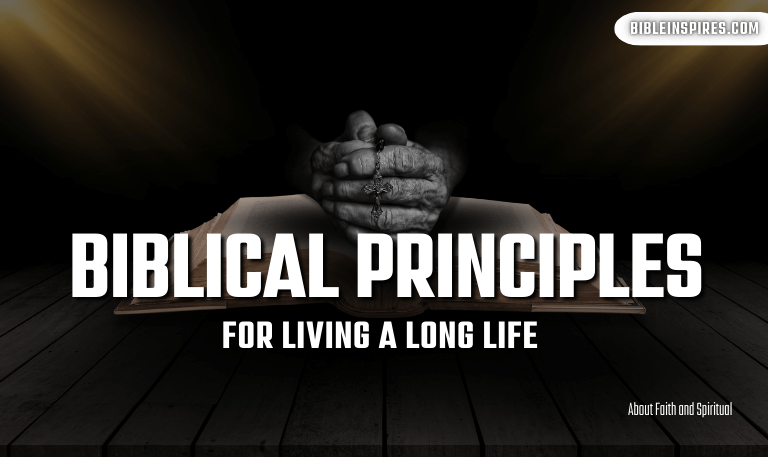The Seven Deadly Sins have been a key part of Christian theology for centuries. They are seen not only as immoral acts but as vices that lead believers away from the grace and purpose intended by God. Understanding these sins, their consequences, and how to overcome them is essential for those looking to live a virtuous Christian life. In this comprehensive guide, we will explore each of the Seven Deadly Sins in the Bible, their biblical origins, how they affect spiritual growth, and practical ways to counteract them.
Introduction to the Deadly Sins in the Bible
The Seven Deadly Sins, often listed as Pride, Greed, Wrath, Envy, Lust, Gluttony, and Sloth, have been a significant part of Christian teachings for centuries. These sins are not explicitly listed in the Bible as a set, but their themes are deeply rooted in biblical scripture. They have been categorized as vices that can lead individuals away from God, and overcoming them is a path toward spiritual growth and closeness with God.
Each of these sins represents a particular form of behavior that can hinder a person’s spiritual journey, and they are frequently discussed in both theological texts and popular culture. In this article, we will explore the biblical meanings of these sins, their consequences, and how Christians can avoid them through repentance, reflection, and spiritual practices.
Read Also: Bible Meaning of Wyll
What Are the Seven Deadly Sins?
The Seven Deadly Sins are traditionally understood as:
Pride
Greed
Wrath
Envy
Lust
Gluttony
Sloth
These sins are often contrasted with the Seven Heavenly Virtues: Humility, Charity, Patience, Kindness, Chastity, Temperance, and Diligence. While the Seven Deadly Sins are considered the root of moral failure, the Heavenly Virtues are the antidotes that Christians strive for in their daily lives.
Pride: The Root of All Evil
Pride is often considered the most serious of the Seven Deadly Sins because it is believed to be the root from which all other sins spring. In the Bible, pride is seen as placing oneself above God and others, believing one’s own strength and achievements to be more important than divine guidance.
Biblical References:
Proverbs 16:18 – “Pride goes before destruction, a haughty spirit before a fall.”
Isaiah 14:12-15 – The fall of Lucifer due to pride, wanting to be like God.
Pride leads to a distorted view of one’s self-importance, which can result in sinful actions like vanity, selfishness, and arrogance. Humility, the opposite of pride, is seen as the key virtue in overcoming it.
Greed: The Destructive Desire for More
Greed is an insatiable desire for material wealth or possessions, often at the expense of others. The Bible warns against coveting riches or hoarding wealth without sharing it with those in need.
Biblical References:
1 Timothy 6:10 – “For the love of money is the root of all evil.”
Luke 12:15 – “Watch out! Be on your guard against all kinds of greed; life does not consist in an abundance of possessions.”
Greed leads to selfishness, exploitation, and a focus on materialism, rather than spiritual values. The antidote to greed is generosity and charity.
Wrath: The Power of Anger and Vengeance
Wrath is intense, uncontrolled anger that can result in hatred, violence, and even revenge. The Bible emphasizes the destructive nature of wrath and encourages forgiveness instead of harboring anger.
Read Also: Happy Friday Blessings
Biblical References:
Proverbs 15:1 – “A gentle answer turns away wrath, but a harsh word stirs up anger.”
Ephesians 4:26 – “In your anger do not sin: Do not let the sun go down while you are still angry.”
Jesus teaches us to forgive others, even when wronged, as a way to combat wrath.
Envy: The Green-Eyed Monster
Envy is the feeling of resentment or jealousy toward others because of their success, possessions, or blessings. It is the desire for what others have, often leading to bitterness and hatred.
Biblical References:
James 3:16 – “For where you have envy and selfish ambition, there you find disorder and every evil practice.”
Galatians 5:26 – “Let us not become conceited, provoking and envying each other.”
Envy corrupts the heart and disturbs relationships. The virtue that counters envy is kindness and a spirit of contentment.
Lust: The Desire for Forbidden Pleasures
Lust is an overwhelming desire for sexual pleasure, often outside the bounds of marriage or God’s intended relationship. It is a desire that can lead individuals to sinful actions that harm their relationships with God and others.
Biblical References:
Matthew 5:28 – “But I tell you that anyone who looks at a woman lustfully has already committed adultery with her in his heart.”
1 John 2:16 – “For everything in the world—the lust of the flesh, the lust of the eyes, and the pride of life—comes not from the Father but from the world.”
Lust is dangerous because it reduces human relationships to mere objects of desire. Chastity and self-control are essential virtues to combat lust.
Gluttony: Overindulgence and Excess
Gluttony is the excessive consumption of food or drink, often to the point of harm. It reflects a lack of self-control and an obsession with material satisfaction, rather than focusing on spiritual well-being.
Biblical References:
Philippians 3:19 – “Their destiny is destruction, their god is their stomach, and their glory is in their shame.”
Proverbs 23:20-21 – “Do not join those who drink too much wine or gorge themselves on meat.”
Gluttony is a form of idolatry, where the satisfaction of physical needs is prioritized over spiritual growth. Temperance and moderation are virtues to strive for.
Sloth: Spiritual Apathy and Inaction
Sloth is a lack of motivation and spiritual apathy. It refers to an unwillingness to act, whether in physical labor or in matters of the faith. This sin is often linked to procrastination and laziness.
Read Also: Role of Mothers in Bible Stories
Biblical References:
Proverbs 6:9-11 – “How long will you lie there, you sluggard? When will you get up from your sleep?”
Matthew 25:26-30 – The parable of the talents, where the lazy servant is punished for failing to use his talents.
The antidote to sloth is diligence, which is the pursuit of God’s work with energy and enthusiasm.
The Virtues That Counteract the Deadly Sins
Each of the Seven Deadly Sins can be countered by one of the Seven Heavenly Virtues:
Humility (to counteract Pride)
Charity (to counteract Greed)
Patience (to counteract Wrath)
Kindness (to counteract Envy)
Chastity (to counteract Lust)
Temperance (to counteract Gluttony)
Diligence (to counteract Sloth)
These virtues help believers align their actions with the will of God and avoid the pitfalls of sinful behavior.
How Jesus Teaches Us to Overcome the Deadly Sins
Jesus’ teachings are essential in understanding how to overcome the Seven Deadly Sins. His life and ministry exemplify the virtues needed to resist temptation. For instance, Jesus’ sermon on the mount teaches about humility, forgiveness, and love.
Theological Perspective on the Seven Deadly Sins
The Seven Deadly Sins are not explicitly mentioned in the Bible as a set, but they are a theological construct that has evolved over centuries. Different Christian denominations emphasize varying aspects of sin and salvation, but the concept of these seven vices remains central to Christian teachings on morality.
Practical Ways to Overcome the Deadly Sins
Repentance and Confession: Regular confession and repentance are vital for overcoming sin.
Prayer and Reflection: Daily prayer helps Christians stay focused on God’s will and avoid falling into temptation.
Cultivating Virtues: Practice the Heavenly Virtues as a way to counteract sinful behavior.
Read Also: Bible Verses About Fatherly Love
Biblical Examples of the Deadly Sins in Action
From Adam and Eve’s disobedience to the envy between Cain and Abel, the Bible is filled with examples where the Seven Deadly Sins led to disastrous consequences.
Deadly Sins in the Bible FAQs
Q: What are the Seven Deadly Sins in the Bible?
A: The Seven Deadly Sins include Pride, Greed, Wrath, Envy, Lust, Gluttony, and Sloth. These sins are considered vices that lead people away from God.
Q: Why is pride considered the deadliest of the sins?
A: Pride is often considered the deadliest because it leads individuals to elevate themselves above God, making it the root of many other sins.
Q: Can you overcome the deadly sins through prayer?
A: Yes, prayer is an essential tool for overcoming the deadly sins. Prayer helps individuals seek forgiveness, reflect on their behavior, and strengthen their resolve to live a righteous life.
Q: How can Christians avoid the deadly sins in daily life?
A: Christians can avoid the deadly sins by cultivating the opposite virtues, regularly engaging in prayer, and practicing repentance when they fall short.
Q: What do the Seven Deadly Sins teach us about human nature?
A: The Seven Deadly Sins highlight the temptations and moral weaknesses inherent in human nature, showing the need for God’s guidance and grace in overcoming them.
Q: How does repentance help overcome the Seven Deadly Sins?
A: Repentance helps individuals acknowledge their sins, seek forgiveness, and make a commitment to change, which is crucial for spiritual growth.
Conclusion
Understanding the Seven Deadly Sins and their counteracting virtues is crucial for spiritual growth. Through repentance, prayer, and striving to live a virtuous life, believers can overcome these sins and walk the path to redemption.

![How to Forgive According to the Bible [2025 Guide] 3 How-to-Forgive-According-to-the-Bible-[2025-Guide]](https://bibleinspires.com/wp-content/uploads/2025/04/How-to-Forgive-According-to-the-Bible-2025-Guide.png)

